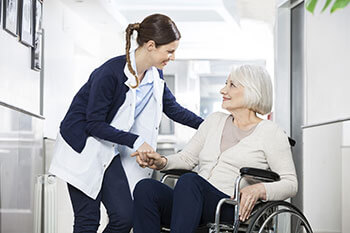Nursing Home Infections
 When multiple people reside in close quarters, infection is always a concern.
When multiple people reside in close quarters, infection is always a concern.
Combine confined living arrangements with elderly people, who often have lowered immune systems and make frequent trips to hospitals, and without proper prevention techniques, it can be disastrous.
IF YOU OR YOUR LOVED ONE IS THE VICTIM OF NURSING HOME ABUSE, OUR FIRM IS HERE TO HELP. CALL US AT (706) 354-4000 TO SCHEDULE A FREE CONSULTATION WITH OUR TEAM.
While some infections are common in Georgia nursing homes and other long-term care facilities, there should be strict protocol in place to prevent and contain infections to keep them from spreading. If a facility has successive, wide-spreading, or abnormal infections, it’s a sign of negligence.
Georgia Nursing Home Protocol for Infections
Evaluating and managing acute care infections in long-term care facilities is one of the greatest challenges to staff and healthcare practitioners.
Nursing homes and other long-term care facilities face a variety of roadblocks such as understaffing, limited technical resources and medical equipment, communication issues (recognition of infections in the elderly can be hindered when it presents differently or a resident is unable to effectively communicate), and financial setbacks, amongst other issues.
Federal regulations mandate nursing homes and other long-term care facilities have an infection control program.
The program is designed to investigate, control, and prevent infections. It also helps staff decide what procedures should be followed when a resident does have an infection, and how the records are maintained relating to infections.
Georgia nursing homes Guidelines
Long-term care facilities should be practicing the following guidelines:
Surveillance
Surveillance helps staff identify trends so a potential outbreak can be avoided and the necessary educational needs can be met for the entire staff.
It’s necessary for the facility to establish criteria that helps identify various infections.
Identification
Once criteria are established, it’s important the staff is educated on what to look for.
Because elderly people may have underlying conditions and weakened immune systems, infection symptoms may be atypical and more difficult to identify.
Prevention
- Hand washing (Hands should be washed for no less than 15 seconds at the following times – even if gloves are worn.)
- Upon arrival at work
- After touching body fluids, blood, secretions or other contaminated items
- Before and after contact with any infected residents
- After using the restroom
- Upon returning from a break
- Before and after eating, handling food
- Before and after wearing gloves
- Before and after handling patient care items
- After sneezing or blowing their nose
- Before leaving work
Protective equipment
- Gloves should be worn whenever the employee comes in contact with bodily fluids or secretions, blood, mucous membranes, skin lesions, or any contaminated substances
- Clean non-sterile gowns should be worn to protect skin and prevent contamination of clothing
- Googles, masks, and face shields should be worn to protect from splashes, sprays of blood, transfer of microorganisms, and coughs
- Proper resident care equipment should be used appropriately
- Reusable equipment should be cleaned thoroughly
- Disposable equipment should be disposed of properly
- Linens should be cleaned and handled in a way that prevents the spreading of microorganism and prevents exposure to contaminates
- Needles should be handled and exposed of properly
Resident Placement for Airborne Infections
- Residents should be isolated
- Have monitored negative air pressure
- Have 6 to 12 air changes per hour
- Air should be filtered before circulated to other areas of the facility
- Respiratory protection
- All employees and visitors should wear a respirator mask when entering the resident’s room
- Employees, other residents, and visitors who have not had chickenpox, measles, or shingles – or been vaccinated against them – should not enter the room of a resident who suffers from one of these infections
Resident transport
- Procedures and diagnostic tests should be performed in the resident’s room rather than transporting them to other areas of the facility
- When an infected resident must be transported, they should wear a mask
Education
- Each facility should have an established infection control program
- Nurses, caregivers, and all other staff should be well trained on infections management
- Residents should be notified and educated on infection management procedures
- Visitors should be informed and educated on proper procedures when visiting a resident with a diagnosed infection
Contact a Nursing Home Abuse Attorney
If you or your loved one resides in a long-term care facility and has an infection as a result of negligence or abuse, our firm is here to help.
Call us today at (706) 354-4000 to schedule a free consultation with our team.
